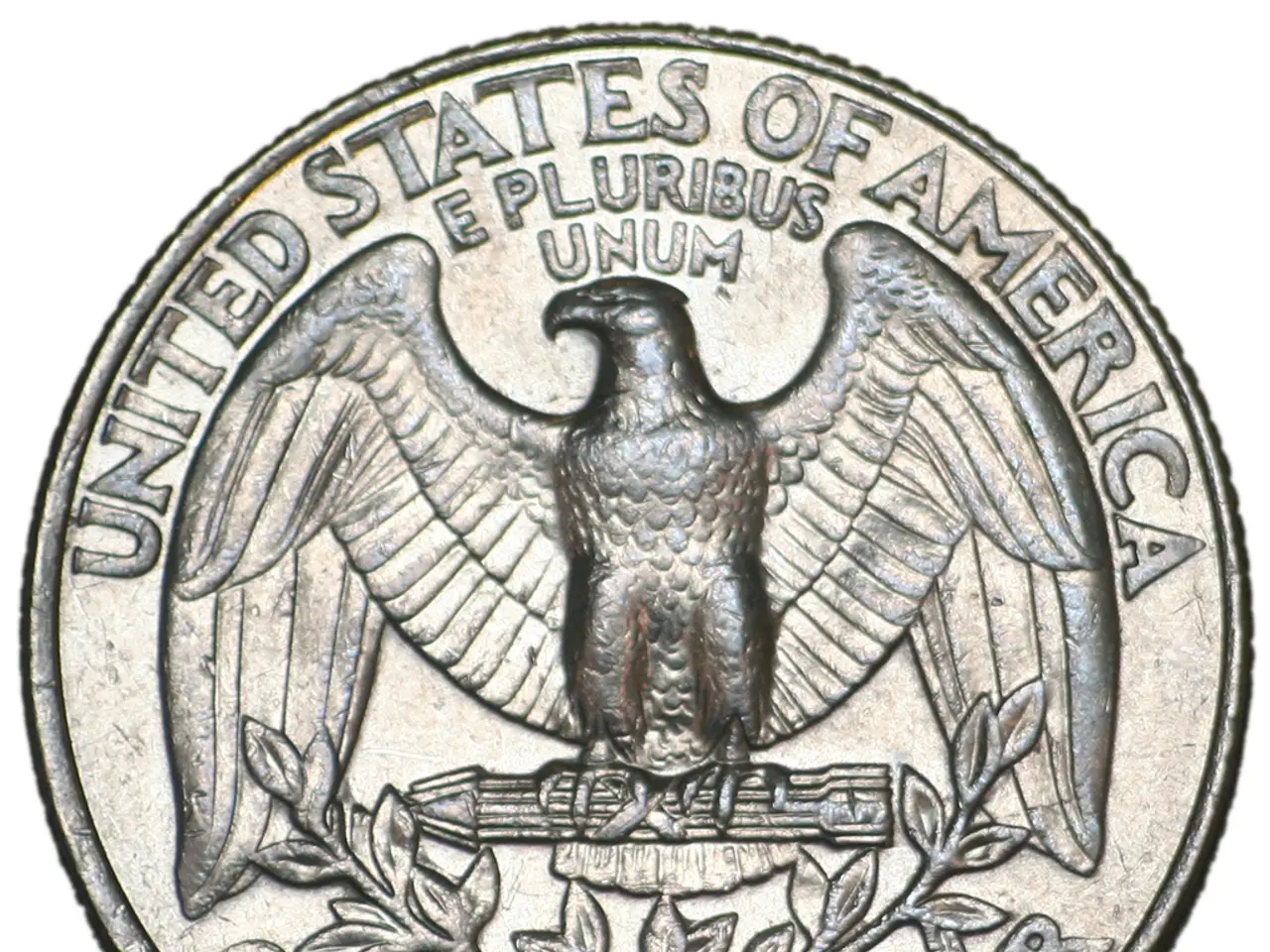Exploration of a shared stablecoin by American banks - according to a report
In the world of finance, a significant development is unfolding as JPMorgan Chase, Wells Fargo, Citigroup, and other major banks are actively exploring a joint stablecoin project. The aim is to leverage stablecoins for enhanced digital payment solutions, including cross-border payments.
The potential benefits of this initiative, particularly for cross-border payments, are numerous. One of the key advantages is faster transaction settlements, reducing the time and friction typically involved in cross-border payments. By using stablecoins, transfers could be made without intermediaries and delays, a significant improvement over traditional banking transfers.
Another advantage is greater global reach and interoperability among major financial institutions. By collaborating on tokenized deposits and shared stablecoin infrastructure, these institutions could potentially enable seamless transfers across borders. This collaboration could lead to a more integrated global financial system.
The regulatory environment for stablecoins is also becoming more favourable. The likely imminent passage of the Genius Act stablecoin legislation in the United States is spurring banks to act. This legislation defines stablecoins as payment instruments backed by high-quality assets and places them under banking regulators’ oversight, increasing stability and regulatory clarity.
Competitive positioning is another key benefit. Traditional banks are seeking to retain and grow their role in digital finance ecosystems by engaging with stablecoins early. This move positions them against fintech companies that are rapidly developing digital payment and tokenization technologies.
The Clearing House, due to its international membership, may be better positioned for cross-border payments initiatives. As a cooperative owned by 22 banks, including the same ones as Zelle, it has the potential to facilitate global transactions efficiently.
JPMorgan, the company responsible for Zelle, is already operating an internal deposit token called JPMD and plans to begin testing external stablecoins. JP Morgan processes $10 trillion in US dollar payments per day and has the most to lose due to potential stablecoin adoption. Despite initial skepticism from JP Morgan CEO Jamie Dimon about the necessity of stablecoins over traditional payment methods, the bank recognizes the competitive need to engage with stablecoins early to understand their function and potential.
Other banks are also following suit. Citi has its Token Services for cross-border payments, and Fnality, backed by 20 institutions, tokenizes central bank money purely for institutional payment usage and is live in the UK, working on going live in the United States.
There are multiple projects around the world exploring the use of blockchain for interbank payments and cross-border payments, including Project Agorá, the Regulated Settlement Network in the United States, the Regulated Liability Network in the UK, and the Commercial Bank Money Token (CBMT) project in Germany.
In summary, while still in active development and testing phases, the joint stablecoin project by JPMorgan, Wells Fargo, and other banks is geared toward improving the efficiency, speed, and reliability of cross-border payments, framed by a newly supportive regulatory environment that fosters institutional confidence and cooperation. The potential benefits are significant, and it will be interesting to see how this development unfolds in the coming months.
Sources: 1. Ledger Insights (2022). JPMorgan, Wells Fargo, Citigroup, and other major banks explore joint stablecoin project. [Online] Available at: https://ledgerinsights.com/jpmorgan-wells-fargo-citigroup-major-banks-explore-joint-stablecoin-project/ 2. The Block (2022). JPMorgan, Wells Fargo, Citigroup, and other major banks explore joint stablecoin project for cross-border payments. [Online] Available at: https://www.theblockcrypto.com/post/107186/jpmorgan-wells-fargo-citigroup-major-banks-explore-joint-stablecoin-project-for-cross-border-payments 3. CoinDesk (2022). U.S. Senate passes bill to regulate stablecoins. [Online] Available at: https://www.coindesk.com/policy/2022/12/08/us-senate-passes-bill-to-regulate-stablecoins/ 4. American Banker (2022). Banks view stablecoins as both a threat and an opportunity. [Online] Available at: https://www.americanbanker.com/news/banks-view-stablecoins-as-both-a-threat-and-an-opportunity
- The joint stablecoin project by major banks, such as JPMorgan Chase, Wells Fargo, and Citigroup, is aimed at capitalizing on stablecoins for improved digital payment solutions, particularly for cross-border payments, utilizing the technological advancements in blockchain.
- One of the key advantages of this project is shorter transaction settlement times, decreasing the traditionally lengthy delays associated with cross-border payments.
- By collaborating on tokenized deposits and shared stablecoin infrastructure, these financial institutions could potentially achieve seamless global transfers and contribute to a more connected global business environment.
- The regulatory environment for stablecoins is becoming more favorable, as illustrated by the likely passage of the Genius Act stablecoin legislation in the United States, which places these payment instruments under banking regulators' oversight and increases their stability and clarity.
- Other banks, like Citi and Fnality, are also engaging in cross-border payment projects involving stablecoins and blockchain, underscoring the growing importance of technology in the banking and finance industry.




